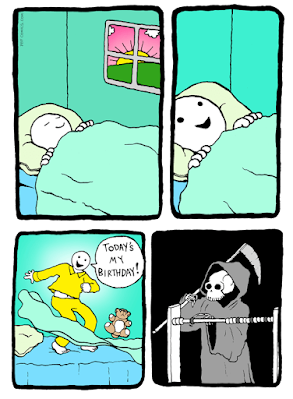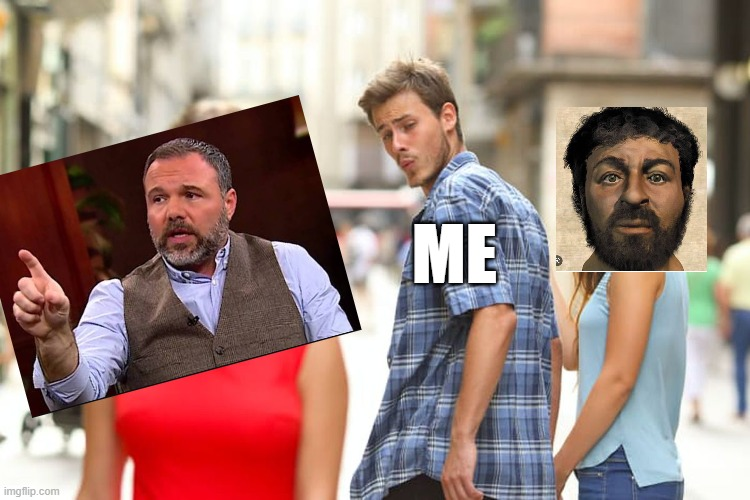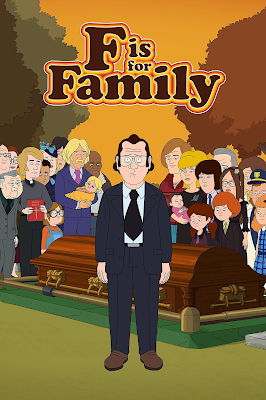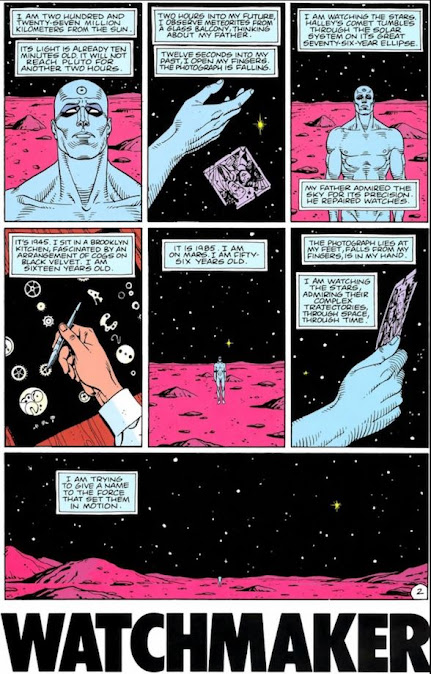Maybe this will rub people the wrong way, maybe it won’t, but I’ve been thinking about some of the current events in my newsfeed, as well as the larger movements happening in our culture, and can’t help but feel exhausted.
This isn’t me, a white guy, being bummed out by “noisy minorities” or “angry women,” but just as a human being witnessing the endless outrage machines pumping out content, day after day, and seeming to not be able to escape it. Lately, I’ve been trying to reconcile the need to stay informed with the need to stay disconnected, and strike a healthy balance. Thus far, I’m coming up empty handed. My only, feeble, recourse has been to delete Facebook from my phone; which, even then, is kind of a pyrrhic victory. (How do you build a business/ following on social media without engaging in it? Trick question: you don't.)
I’m trying to understand the best way forward but not getting anywhere.
I started noticing this when I decided to stop listening to The Problem with John Stewart. Full disclosure, I love the show. It’s fantastic, informative, and generally entertaining. It’s also cathartic and moving, and getting to hear a dialogue being hashed out between people of varying opinions, something Stewart has always excelled at, is very gratifying. (We ought to recognize the diversity of opinion in this world and be OKAY with that.) But at a certain point hearing a continuous track of “the world sucks, everything is evil, everything is fucked,” becomes staggeringly oppressive. That is sort of the unforeseen gift of technology in general: we are given a mirror to hold up to our faces and observe the horror of who we are, without the veneer of best intentions and window dressing. And it’s awful.
Stay with me. I’m getting to my point.
So, I decided to find something different and landed on a podcast called Ask NT Wright Anything. The show itself follows a pretty loose format (at least as far as the first 30-something episodes are concerned), featuring Justin Brierley as host (known for his Unbelievable podcast), bouncing a handful of questions off of Wright every two weeks. (For those of you unfamiliar with Wright, he is a New Testament scholar that has contributed a wealth of information on the study of theology and history and philosophy over the last 40-50 years.) The questions vary week to week, some on difficult topics like abuse and church politics, but also touch on lighter things like general pastoral guidance, prayer, and intercession in general.
What got me thinking about the world, and my role in it, is the preface he mentions before answering these personal questions in the podcast. “I can’t be your 'online' pastor,” Brierley/Wright say emphatically. “Please join a local church community and seek guidance and have someone work through these painful topics thoroughly, in person.” But then, of course, Wright proceeds to start answering the questions as best he can. (He even did so with me some years back when I worked up the courage to email him about some of my own struggles with faith. An absolute boss of a human!)
This gave me an epiphany that may be kind of “bleh, that’s obvious,” but I realized that my ability to affect change in the world is fundamentally finite. So, how much I can influence the treatment of Uyghurs in China, is fundamentally small. It’s not something that I can change or control, personally. I can vote in a general election for policies and politicians that may want to address something like that but, even then, unless I go over there to actively change something, I can’t actually do anything. We still live in a world where geography separates us from active conflicts. Technology can bring us up close but only as voyeurs.
So, how did this revelation change my perspective?
I'm not saying "don't care about things like BLM or MeToo." I'm saying, "care about what is happening in your own neighborhood, in your own town." You can affect change there in a meaningful and positive way because it comes from your own hands. I think the appeal of activism in general comes from the vicarious experiences it produces, but otherwise it’s just abuse tourism (or, as some have called it, "voluntourism"). Similar to how Christian youth groups go to Africa for a week to build a single house and then leave to go home and feel good about themselves, it’s easier to find inoffensive ways to help than to actually get down in the mud and trauma of people in tough places.
(The irony of the former example is that Christians are called to actually do this, but we often (myself included) shirk those commitments in favor of a comfortable, drama-free existence. In fact, we are called to, and ought to, be involved in our local churches, be with others in solidarity with their struggles, and volunteer where necessary. While it seems trivial to pick up chairs after service, it is Kingdom work that serves an immediate need for everyone.)
The good thing about local activism is that you, the individual, are the hands and feet of the movement. You see the change taking effect and you aren’t fucking off to somewhere else afterward to allow it to grow back (sometimes worse than before). But the constant availing of ourselves to this kind of brutality and carnage in the remote places that we will never set foot in, via social media and the 24-hour news cycle, is exhausting. If anything, media organizations of every flavor only profit off it when we tune in and pay attention to it (via advertising revenue). What I’m not saying is to be indifferent to earthquakes in Haiti, gun violence in Florida, or wars in Europe. What I’m saying is, if you do decide to engage, quit your job, change your life, actively do something about it. Otherwise, you'll just be angry, constantly, at how shitty the world is, and continue the endless cycle of outrage and grief at all the bad things we have no control over. But, the alternative is far better: do something about it in your own backyard. And over where the carnage is, make the choice to let others do the work, that is unless you are otherwise called to be there yourself. God is still in control.
That said, I sat on the above for a day or two and felt compelled to add an additional thought... There are events that occur that do demand international assistance, like the ongoing war in Ukraine, or previous international incidents like the Bosnian War or the Rwandan genocide, but I think the response of private citizens willingly enlisting their skills and services to confront these events is the most realistic path forward. Also, in the wake of the murder of George Floyd, making an active effort to be aware of systemic racism and confronting it where possible, has different applications specific to whichever region we live in. In California, for instance, Latino communities make up the largest percentage of residents, yet are routinely marginalized. So, wherever we are needed, we should go and support others and be prepared to serve and minister.























